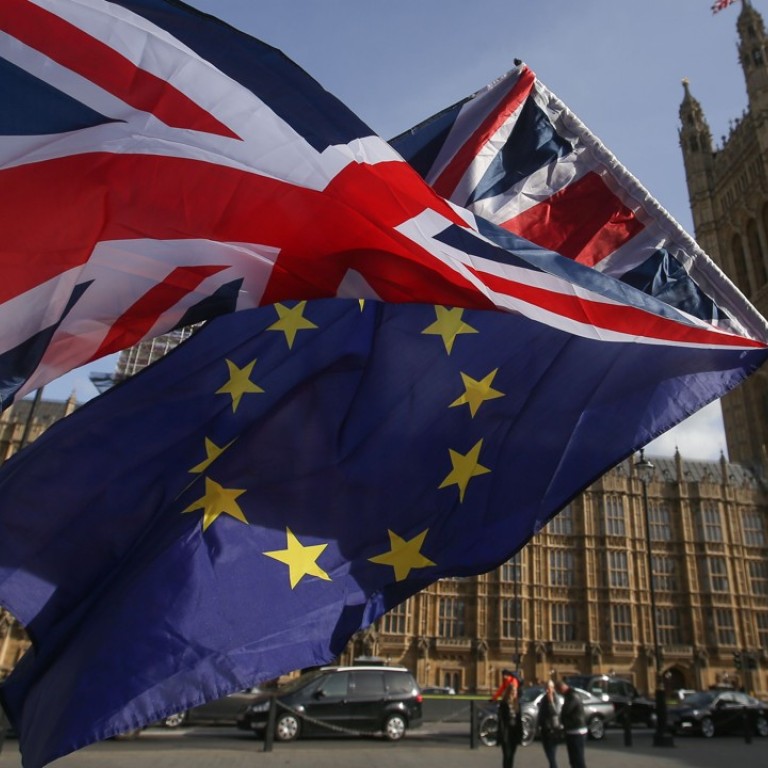
Brexit will only work for Britain if the EU breaks apart - and that would be a disaster for all
Kevin Rafferty says it’s time for anti-Brexit heavyweights to convince the British population that the impending break with the EU is a disaster that must be avoided

Voters were promised a land flowing with milk and honey if the UK left the EU, including £350 million (US$461 million) a week to the beloved and beleaguered National Health Service, freedom to control immigration and movement of labour, escape from the diktats of Brussels and rescue of British sovereignty from dreadful Johnny Foreigner.
The divorce settlement is estimated at £39 billion and the UK may have to continue to pay alimony to the EU into the far distant future
Brexit comes with a heavy price. The divorce settlement is estimated at £39 billion and the UK may have to continue to pay alimony to the EU into the far distant future. The continuing bill for being outside the EU will range from £260 million a week if a deal allows being in the European Economic Area to £1.25 billion a week if Britain has to deal with the EU on World Trade Organisation terms.
The economic writing already on the wall is not pretty. Over the past 40 years, complicated supply chains have been built between British and European companies. If, after Brexit, parts are waiting in customs queues, manufacturers will have to rethink their supply chains.
The choice May faces is between a Brexit that is economically ruinous and one that would mean continuing to pay the EU’s membership dues, including accepting free movement of labour, without any of the perks, such as having a seat at the table or making decisions.
Watch: Brexit won’t damage China-UK ties, Beijing tells Theresa May
That response, just nine months before the Brexit deadline, symbolises the crisis. May’s cabinet can’t present a united front to Brussels. Its members will face another crunch when – or if – they can agree on whatever bespoke scheme they imagine for Brexit: Michel Barnier, the EU’s lead negotiator, is likely to reject it.
The cruel but unspoken truth is that Brexit will only work for Britain if the rest of the EU falls apart and breaks into its separate nations. That’s evidently what US President Donald Trump wants, but that would be bad for the world and disastrous for Europe, politically and economically.
May last year delivered a stirring message of Brexit Britain open for business to the world. It was an imperial statement that was almost a century too late because Brexit Britain lacks economic strength to make it attractive – and cannot afford the gunboats to enforce her vision.

If Britain is to get real, it needs its heavyweight European politicians of all parties – “Big Beast” Ken Clarke, Chris Patten, Gordon Brown, Ed Balls, Vince Cable – to come out of the shadows of Westminster or retirement, and take the case to the people, as the nearly 70-year-old William Gladstone campaigned 140 years ago.
Kevin Rafferty is a political commentator

